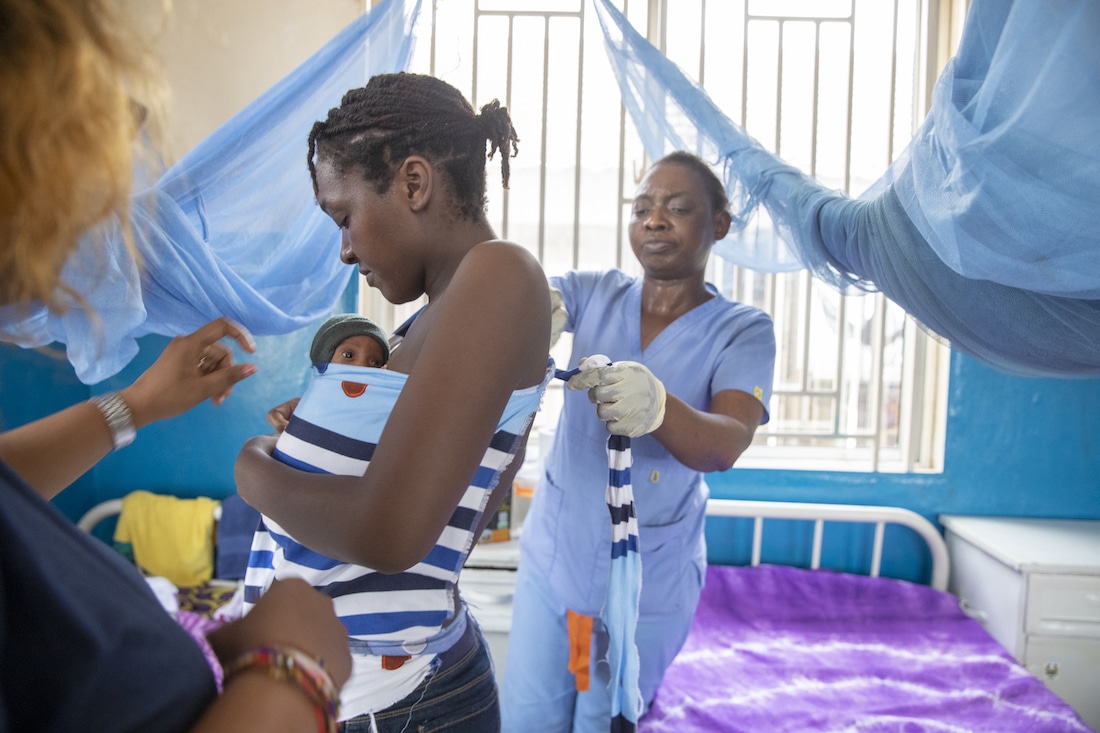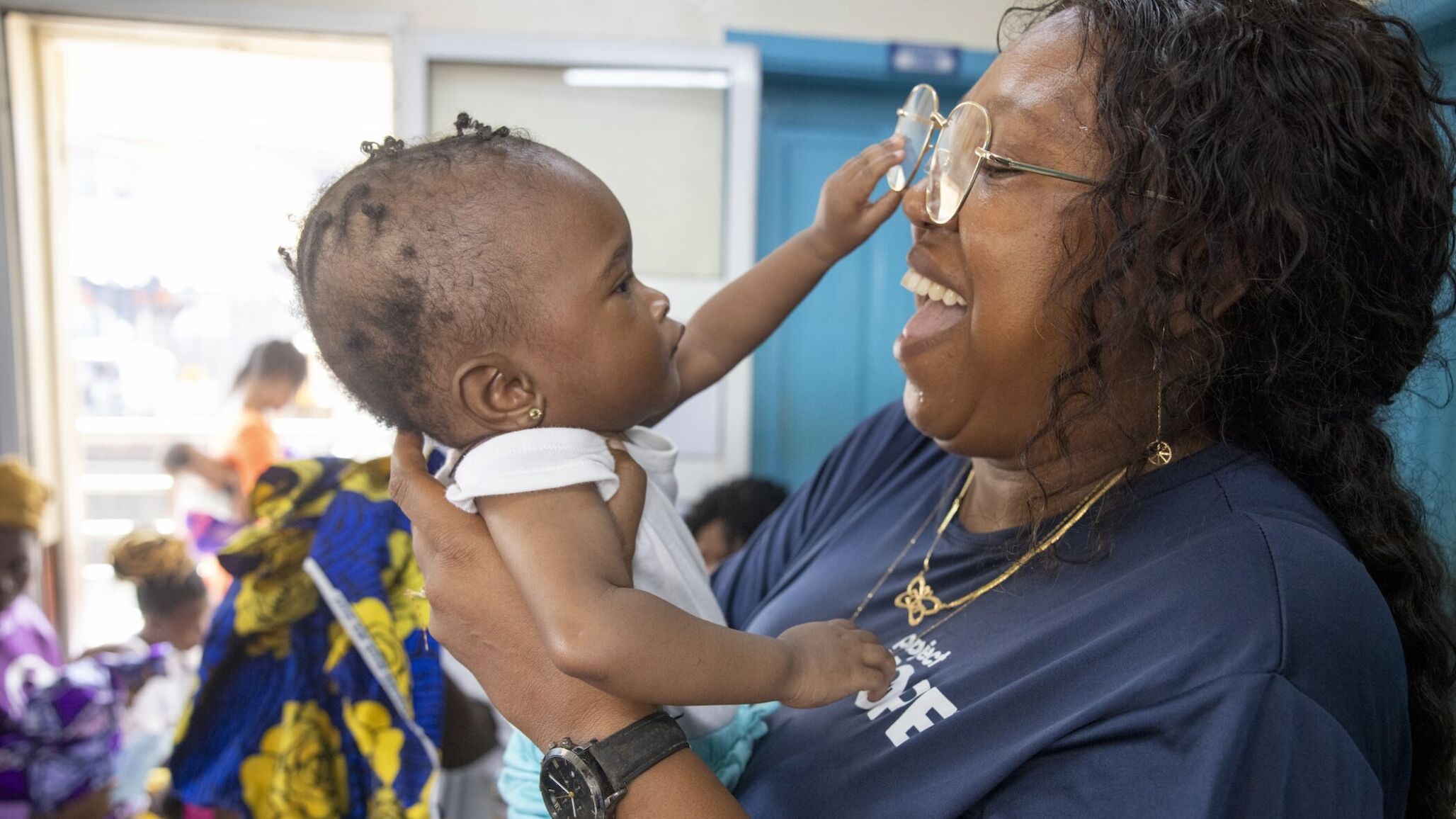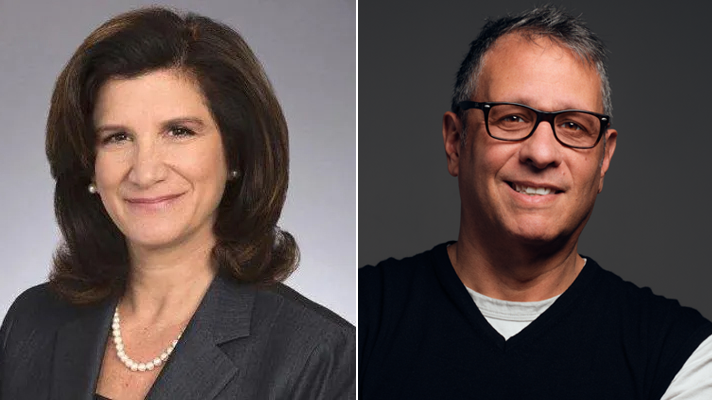How Project HOPE Volunteers Empowered a New Generation of Neonatal Nurses in Sierra Leone
In Sierra Leone, Project HOPE’s programming is transforming pregnancy and childbirth while equipping a new generation of neonatal nurses — all done by the work of volunteers.

There are many reasons to volunteer: to serve others, to share what you’ve learned, to build friendships across countries and cultures, to broaden your understanding, to become a role model and change agent, or to be a champion for others in need. But to me, the greatest benefit has been forging professional friendships that will last long beyond my work with Project HOPE.
Since 2018, I have had the opportunity to assist in the technical management of Project HOPE’s Sierra Leone neonatal nursing program, which is creating long-term impact and helping Sierra Leone to lower it’s high neonatal mortality rate. This program is unique at Project HOPE in that the team of experienced managers, trainers, consultants, and mentors who built the program have mostly been volunteers.
Sierra Leone is one of the poorest countries in Africa and needed assistance to re-establish its health care system after the 2014 Ebola epidemic. International organizations were not firmly established in the country, so Project HOPE was welcomed.
After 35 years of working with international nursing programs, I knew I wanted to continue making a difference in the care of mothers and children as a volunteer. So, I became involved in helping HOPE’s programs in Sierra Leone address high neonatal mortality rates and build sustainable approaches to nursing education and mentorship. As Director of Nursing at Project HOPE in the 1980s and ’90s, I experienced the positive contributions that volunteers were making to HOPE programs. I felt I could contribute in a significant way as a volunteer during my semi-retirement, which rapidly ramped up to full-time volunteering.
I made multiple two-week visits to Sierra Leone in 2018 and 2019. The first assessment was accompanied by Project HOPE’s Dr. Tom Kenyon, who has been a champion for improved neonatal care in his Newborn Initiative Program. These early visits were requested by the Bo District Medical Director and focused on community newborn care, which included training health care workers in community-based neonatal care, establishing community mother care groups, and expanding the mother care groups to include village savings and loan groups to support transportation for mothers and babies.

We found the health care community to be very receptive to Project HOPE’s programs and there was a deep desire to improve the high neonatal mortality rate in the country. Sierra Leone had a history of civil war and was an epicenter for Ebola in Africa. This history depleted the human resources that were assigned to hospital care of mothers, children, and newborns. Many health care workers were not up-to date on their skills; equipment and supplies were scarce; and the remaining nurses and doctors were often not paid for their services — but they were committed to improving newborn care.
Community mother care groups were a new approach to helping mothers and their newborns access care and to learn how to provide home-based care for small babies. These programs have been sustainable for the past five years and are still going strong.
In addition to the community newborn care, Project HOPE established Kangaroo Mother Care (KMC) units at Ola During Children’s Hospital in Freetown and Bo District Hospital. These eight-bed units help mothers care for small and premature babies by wrapping them skin-to-skin.
Project HOPE’s community approach to home-based care of newborns, establishment of KMC units, and training of primary care nurses in neonatal resuscitation in Bo District eventually became a model for other districts. Because of the program’s success, we soon received requests for assistance at the central referral hospital and university levels.

In most African countries, neonatal nurses are omitted in national workforce planning. In Sierra Leone, neonatal mortality rates remain consistently high and there is a critical human resource gap for skilled nurses to care for small and sick newborns. Recognizing this need, the Ministry of Health and Sanitation, as well as the University of Sierra Leone, searched for sustainable models of neonatal nursing education and quality clinical practice that could be contextualized to the needs in Sierra Leone.
After Project HOPE’s successes building community newborn care programs, the College of Medicine and Health Science at the University of Sierra Leone requested Project HOPE’s assistance in establishing a Bachelor’s Degree in Neonatal Nursing and Pediatrics. Over the next two years, our volunteer neonatal nurse educators began developing curricula and training faculty, much of it done virtually during the COVID-19 pandemic. When travel restrictions were lifted, multidisciplinary teams of Project HOPE volunteers made trips to Ola During Children’s Hospital in Freetown to focus on implementing the advanced curricula and training faculty to teach the new content to future students.
Following the graduation of the first students and their placement in special care baby units, the University and School of Nursing requested HOPE’s assistance in developing an advanced neonatal Master’s degree. The success of these programs were due to the commitment by the University and the Ministry of Health, along with the strong relationship with Project HOPE. HOPE’s volunteer program is proud to help the country launch its first Master of Science degree in Neonatal Nursing, which will be admitting its first students in May 2023.

Today, the college’s administration takes a lot of pride in its establishment of the neonatal nursing program, as only a few institutions have created similar programs in Africa. To date, 30 students have graduated with Bachelor of Science in Neonatal Nursing degrees, and have since been placed in newborn health care facilities across Sierra Leone.
The Ola During Children’s Hospital’s referral hospital Special Care Baby Unit is currently being developed as a national neonatal teaching center for nurses who care for newborns and will be led by clinical preceptors and faculty who are specially-trained to teach quality care for small and sick newborns.
Together, Project HOPE and Sierra Leone are preparing a new corps of neonatal nurses, decreasing the high neonatal mortality rate, and offering a successful model of education and practice for other countries to follow. The model has proven that a team of volunteers can successfully operationalize a complicated program over time.
When volunteers are asked why they want to continue offering their time in the program, they say it is because of their joy in providing service to others and the development of positive relationships with counterparts that in most cases has lasted years
I’m very proud of what Project HOPE volunteers have accomplished with our partners and counterparts in Sierra Leone — especially in the development of a program that will train a generation of neonatal nurses. This program is one of the first of its kind in Africa and stands out as an example of true partnership and collaboration that other countries and organizations can follow. I am honored to be a part of this effort, and look forward to seeing the long-term impact our work will have on the care of mothers and newborns in Sierra Leone.
Carolyn Kruger, Ph.D, MSN, MA, is a Project HOPE Volunteer of the Year 2018 and former Director of Nursing at Project HOPE. She has worked as a volunteer with the Neonatal Nursing Volunteer Program in Sierra Leone for the past six years.



